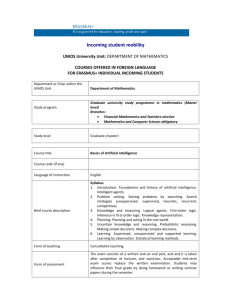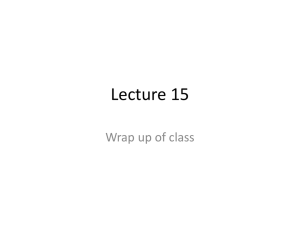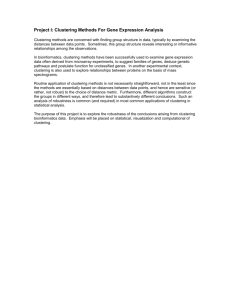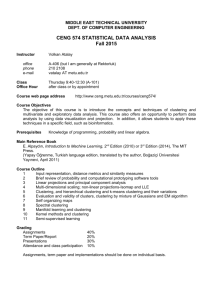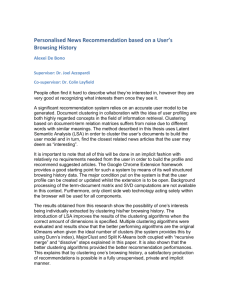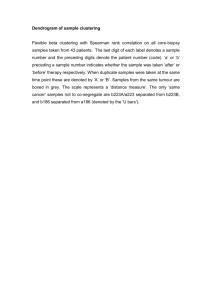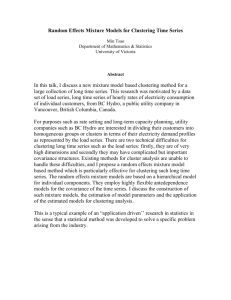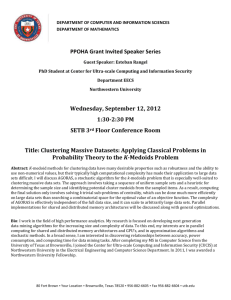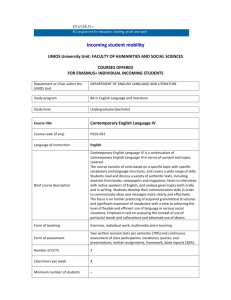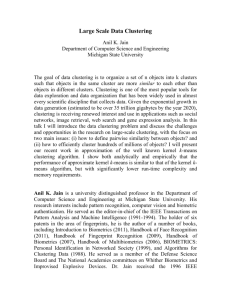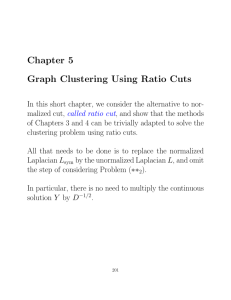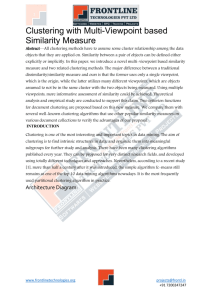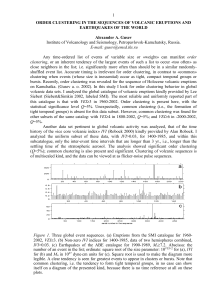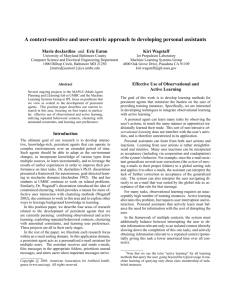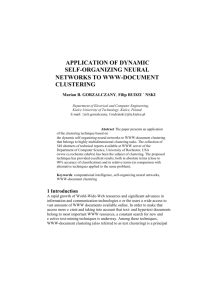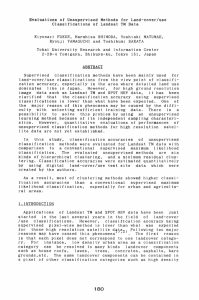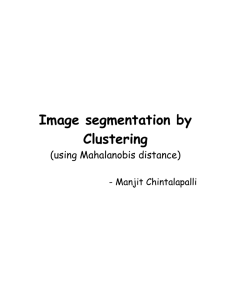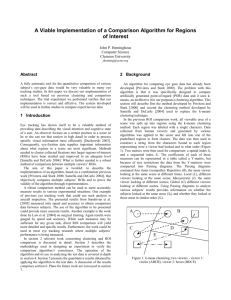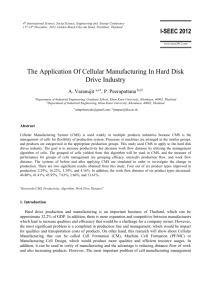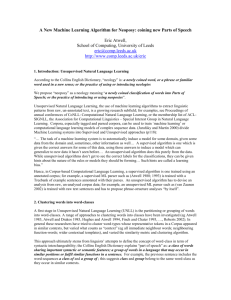COURSES OFFERED IN FOREIGN LANGUAGES
advertisement
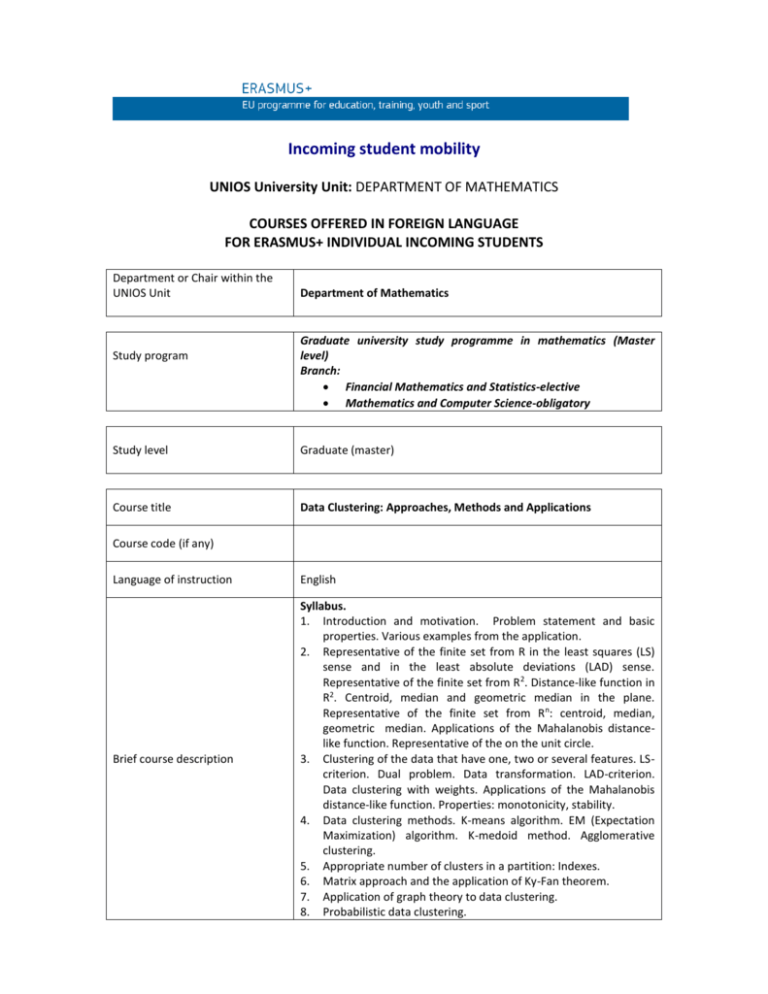
Incoming student mobility UNIOS University Unit: DEPARTMENT OF MATHEMATICS COURSES OFFERED IN FOREIGN LANGUAGE FOR ERASMUS+ INDIVIDUAL INCOMING STUDENTS Department or Chair within the UNIOS Unit Study program Department of Mathematics Graduate university study programme in mathematics (Master level) Branch: Financial Mathematics and Statistics-elective Mathematics and Computer Science-obligatory Study level Graduate (master) Course title Data Clustering: Approaches, Methods and Applications Course code (if any) Language of instruction English Brief course description Syllabus. 1. Introduction and motivation. Problem statement and basic properties. Various examples from the application. 2. Representative of the finite set from R in the least squares (LS) sense and in the least absolute deviations (LAD) sense. Representative of the finite set from R 2. Distance-like function in R2. Centroid, median and geometric median in the plane. Representative of the finite set from R n: centroid, median, geometric median. Applications of the Mahalanobis distancelike function. Representative of the on the unit circle. 3. Clustering of the data that have one, two or several features. LScriterion. Dual problem. Data transformation. LAD-criterion. Data clustering with weights. Applications of the Mahalanobis distance-like function. Properties: monotonicity, stability. 4. Data clustering methods. K-means algorithm. EM (Expectation Maximization) algorithm. K-medoid method. Agglomerative clustering. 5. Appropriate number of clusters in a partition: Indexes. 6. Matrix approach and the application of Ky-Fan theorem. 7. Application of graph theory to data clustering. 8. Probabilistic data clustering. Form of teaching Consultative teaching. Form of assessment The exam consists of a written and an oral part, and it is taken after completion of lectures. Acceptable results achieved in mid-term exams throughout the semester replace the written part of the exam. Students may influence their final grade by doing homework or writing a seminar paper during the semester. Homework expands course contents, and students are expected to be independent and creative. Seminar papers are understood as an extension of homework. Number of ECTS 5 Class hours per week 2+1+1 Minimum number of students Period of realization Lecturer Summer semester Dr. Kristian Sabo, Associate Professor
